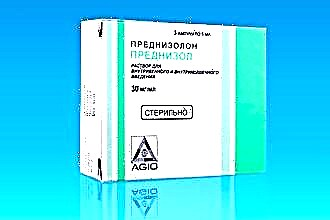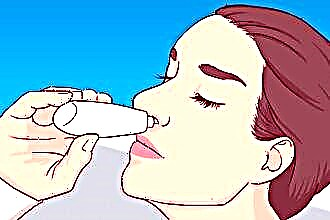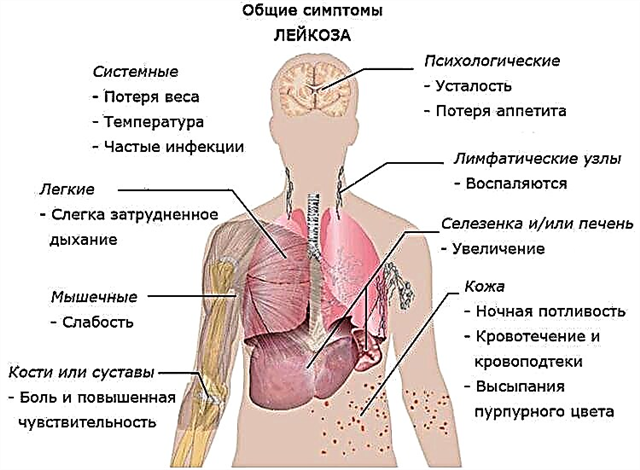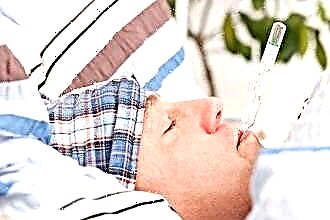Almost everyone knows the sensation when itching in the nose, but few thought about what caused the uncomfortable sensations. This symptom may indicate diseases such as allergies or infectious rhinitis.
Itchy nose brings a lot of inconvenience, interferes with work and communication with people around. Often, itching is accompanied by sneezing and nasal discharge. The cause of discomfort in the nasal passages is mucosal irritation.  Let's try to figure out what provoking factors have a negative effect on the inner surface of the nasal cavities.
Let's try to figure out what provoking factors have a negative effect on the inner surface of the nasal cavities.
Note that sneezing refers to the body's defensive reactions. The mucous membrane contains many cilia, which are in constant motion, directing dirt outward. To make dust particles easier to move, mucus is produced, which envelops the mucous membrane, cleanses and protects it.
After the allergen enters the nasal cavities, their cleaning begins, which is accompanied by sneezing. Thus, only a few microbes manage to attach to the inner surface of the nasal passages. Now let's talk about why the nose itches.
Allergy
Most often, the nose itches due to an allergic reaction. It can occur during a certain period, for example, during the flowering of plants, or it can occur spontaneously after contact of the body with an allergen. With pollinosis, a specific reaction of the immune system develops in response to the deposition of pollen on the nasal mucosa.
Clinical signs of allergies
The consequence of the development of an allergic reaction is the appearance of symptoms such as:
- sore throat;
- sneezing;
- itching in the nose;
- cough;
- severe runny nose, which is accompanied by the release of watery mucus;
- lacrimation;
- itching of the skin, eyes, nose;
- swelling of tissues. Depending on the severity of the allergic reaction, swelling may be limited to certain parts of the body, for example, lips, tongue, or cover larger areas (neck, chest).
Prolonged contact with an allergen can lead to bronchospasm and suffocation.
The intensity of the symptoms depends on the strength of the provocateur and the person's allergic predisposition. Allergy symptoms appear within a few minutes or a couple of hours after contact with a provoking factor. Frequent allergens include:
- animal hair;
- perfume aromas;
- cosmetical tools;
- dust;
- citrus;
- chocolate;
- seafood;
- pollen.
Allergy help
Itching in the nose can be eliminated after the person's contact with the allergen has ceased. This is the only way to completely get rid of allergies. If the provocateur continues to affect the body, the following medications and techniques can be used in the treatment:
- antihistamine nasal sprays, such as Allergodil;
- antihistamines (Zodak, Claritin, Diazolin, Suprastin, Erius, Tsetrilev, Tsetrin);
- homeopathic remedies (Delufen);
- salt solutions. They are used to flush the nasal passages in order to remove the allergen that is inside the nose. For this, Aqualor, Humer, Salin are used;
- hormonal drugs. They are prescribed for severe cases, when other groups of medicines are not able to alleviate the patient's condition.
 Steroid medications are addictive, so they are used only on the advice of a doctor. Among nasal hormonal agents, the effectiveness of Nasonex should be noted. If necessary, corticosteroids can be given intramuscularly or intravenously (Prednisolone);
Steroid medications are addictive, so they are used only on the advice of a doctor. Among nasal hormonal agents, the effectiveness of Nasonex should be noted. If necessary, corticosteroids can be given intramuscularly or intravenously (Prednisolone); - specific hyposensitization. It is carried out when drug therapy is ineffective. The technique involves the subcutaneous injection of small doses of the allergen in order to increase the body's resistance to its action. Doses are gradually increased, thereby increasing the threshold of the immune system.
To establish the type of allergen, the doctor examines the patient's immunological status and conducts specific tests. To prevent the development of a severe allergic reaction with hay fever, sometimes the allergist recommends starting therapy two weeks before the beginning of flowering.
As for folk advice, it is recommended to use a salt solution and herbal decoctions to reduce the severity of allergy symptoms. To prepare a medicine for washing the nasal passages, it is necessary to dissolve food (sea) salt (5 g) in 700 ml of warm water.
Of all the herbs, you should opt for a string, calendula or coltsfoot. To obtain the infusion, it is enough to pour 15 g of the herb with boiling water (260 ml). After 25 minutes, you can start the procedure.
Microbial rhinitis
Itchy nose can be caused by an infection of the body. Despite the every second attack of the mucous membrane by pathogenic microorganisms, diseases develop extremely rarely. The fact is that local immunity protects the mucous membrane from infection.
Predisposing factors
When does the risk of infection increase?
- with immunodeficiency due to severe systemic infection, somatic diseases or congenital pathology;
- due to prolonged inhalation of cold air. Against this background, a spasm of the blood vessels of the nasopharynx occurs, the delivery of immune components deteriorates, the nutrition of the tissues is disrupted and the mucous membrane becomes dry. She becomes more sensitive to germs. Itching sensations arise due to irritation of the mucous membrane by pathogenic microorganisms;
 with prolonged use of intranasal drops with a vasoconstrictor effect. The action of drugs is to provide vasospasm. A decrease in the diameter of the vessels at the injection site leads to a decrease in the severity of rhinorrhea and tissue swelling.
with prolonged use of intranasal drops with a vasoconstrictor effect. The action of drugs is to provide vasospasm. A decrease in the diameter of the vessels at the injection site leads to a decrease in the severity of rhinorrhea and tissue swelling.
If you do not follow the recommended dosages and the duration of the treatment course with vasoconstrictor drugs, the mucous membrane gradually dries up and atrophies.
Symptoms
The clinical manifestations of microbial rhinitis include:
- itchy nose;
- sneezing;
- mucous rhinorrhea, which is gradually replaced by thick discharge with a yellowish tinge;
- hyperthermia (the level of fever depends on the type of pathogenic microorganisms);
- nasal congestion due to tissue swelling;
- Difficulty nasal breathing;
- lack of smell.
Due to the frequent friction of the wings of the nose, the skin of this zone begins to peel off, turn red, and microcracks appear. They are painful and act as entry points for infection.
Rhinitis goes through several stages, which are characterized by their own symptoms:
- at the first stage, the nose begins to itch. In addition to internal itching, lacrimation and a slight rhinorrhea are troubling;
- the second is characterized by the secretion of mucus in a large volume and the absence of nasal breathing;
- the third stage is final when the discharge becomes thick and gradually disappears.
Drug therapy

To remove itching in the nose and other symptoms of infectious rhinitis, it is necessary to act on the cause of the disease. For this, the following may be assigned:
- antibacterial agents, for example, Isofra, Bioparox. They are administered locally. In case of a complicated course of the disease, systemic antibiotics (Amoxicillin, Sumamed) can be used;
- antiseptic preparations for washing the nasal passages (Furacillin, Dekasan);
- antiviral medicines for nasal administration, for example, Grippferon. The drugs stimulate the production of interferons to strengthen the immune system;
- tableted antiviral drugs, for example, Amiksin, Groprinosin.
To combat rhinorrhea, you can use:
- vasoconstrictor medicines such as Lazorin, Snoop, Tizin. They are appointed in a short course of up to 5 days;
- saline solutions (Aqua Maris), which are used to flush the nasal passages.
Traditional methods
If itching in the nose, you can use folk remedies:
- inhalation with onions, garlic. To do this, you need to grind the ingredients, wrap them with a handkerchief and inhale the aroma for 10 minutes. Inhalation can also be done with horseradish. It should be crushed, placed in a resealable container and left in the refrigerator. Every 90 minutes you need to take 5-6 breaths of horseradish aromas;
- nasal drops. First, you should peel, chop the onion, garlic, squeeze the juice. In eucalyptus oil (5 drops), you must add a drop of garlic juice or a couple of drops of onion;
- aloe juice. To obtain a healing medicine, it is necessary to cut the plant, peel it, wrap it in a dark cloth and leave it in the refrigerator for half a day. Then you need to squeeze out the juice, drip the nasal passages drop by drop. In some cases, it is recommended to dilute the juice with boiled water to obtain a 50% concentration.
Dry air
Often, the nose itches during a long stay in a hot area or in a closed room that is intensely heated. An itchy sensation may appear when the humidity drops to 45%. As a result, the nasal mucosa dries up, loses its protective functions and becomes more sensitive to the effects of environmental factors.
To make breathing easier, you need to humidify the air using a special device, place containers with water in the room, or hang out wet laundry.
Up to four times a day, you can rinse the nasal cavities with a saline solution, for example, Aqualor or Marimer. Oily preparations perfectly moisturize, envelop the mucous membrane, protect it from damage and stimulate regeneration.
So, the use of the herbal medicine Pinosol is recommended. It consists of eucalyptus oil, vitamin A, pine needle oils and mint leaves. In addition, you can use flaxseed, sea buckthorn, peach oil.
In folk omens, an itchy nose indicates an upcoming feast or quarrel.
Nervous Disorders
More and more often I want to scratch my nose with nervous strain. Many of us do not even notice when itching sensations appear against the background of worries, quarrels or excitement.
Often itching in the nose of suspicious people who are more sensitive to stressful situations. A chain of physiological reactions leads to irritation of the nerve endings, which is clinically manifested by itching.
To stabilize the psychoemotional state, it is recommended to take herbal sedatives. Such medicines include motherwort, peony, lemon balm and valerian. If necessary, the doctor may prescribe tranquilizers.
Now you know that itching inside the nose can indicate the development of serious medical conditions. Untimely access to a specialist can lead to the progression of pathology and undesirable consequences.

 Steroid medications are addictive, so they are used only on the advice of a doctor. Among nasal hormonal agents, the effectiveness of Nasonex should be noted. If necessary, corticosteroids can be given intramuscularly or intravenously (Prednisolone);
Steroid medications are addictive, so they are used only on the advice of a doctor. Among nasal hormonal agents, the effectiveness of Nasonex should be noted. If necessary, corticosteroids can be given intramuscularly or intravenously (Prednisolone); with prolonged use of intranasal drops with a vasoconstrictor effect. The action of drugs is to provide vasospasm. A decrease in the diameter of the vessels at the injection site leads to a decrease in the severity of rhinorrhea and tissue swelling.
with prolonged use of intranasal drops with a vasoconstrictor effect. The action of drugs is to provide vasospasm. A decrease in the diameter of the vessels at the injection site leads to a decrease in the severity of rhinorrhea and tissue swelling.

